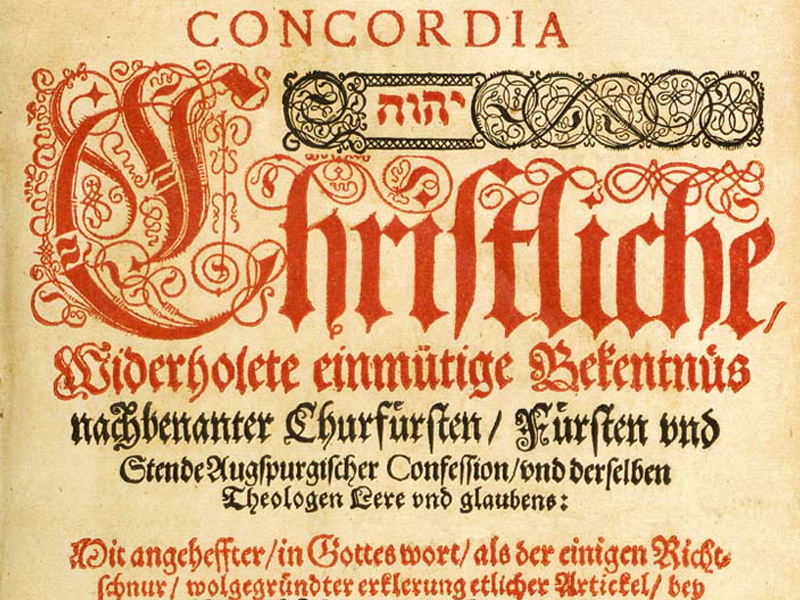Among Americans who consider themselves Christian, 52% believe they are saved by their good works rather than by faith in Christ as Savior.
These were among the findings of the American Worldview Inventory 2020, an annual research project conducted by Dr. George Barna and sponsored by Arizona Christian University.
Even among churches that explicitly teach the Gospel of salvation by Christ, the numbers are not much better. Of those who describe themselves as “evangelical,” 41% believe that salvation comes by works, as do 46% of Pentecostals.
Those percentages are close to the theologically liberal mainline Protestants, 44% of whom believe, in the words of the study, that “if a person is generally good, or does enough good things during their life, they will ‘earn’ a place in Heaven.” Agreeing with this formulation are 70% of Roman Catholics, who officially believe in the importance of good works in “meriting” salvation.
Americans do believe in the importance of faith. It just doesn’t matter what that faith is.
Altogether, 48% of Americans believe in salvation by works, while 35% believe that salvation is by Christ. (The rest includes those who do not believe in salvation at all.)
And yet, though so many Americans and a majority of “Christians” believe they are saved by their good works, not many are concerned with doing good works or the consequences of sin.
For example, 58% of Americans believe “there is no absolute moral truth”; and 77% believe “right and wrong is determined by factors other than the Bible.” As for that book, 59% of Americans say that “the Bible is not the authoritative and true word of God.”
The study also found that only 56% of Americans “consciously and consistently attempt to avoid sinning because they know it offends God.”
Americans do believe in the importance of faith. It just doesn’t matter what that faith is. Nearly two out of three adults, 63%, agree that “having some type of religious faith is more important than which faith a person aligns with.”
Self-described “Christians” are even more relativistic than Americans as a whole: 68% agree that the content or object of the faith doesn’t matter. In terms of Christian denominations, 56% of Evangelicals, 62% of Pentecostals, 67% of mainline Protestants, and 77% of Roman Catholics agree that the content or object of faith doesn’t matter.
The research did not break down the data for parishioners of The Lutheran Church—Missouri Synod. Pastors might want to conduct an inventory of their own.
However, the study shows that it isn’t just the “unchurched” who need to be evangelized. Lots of people who attend churches — likely even Lutheran churches — are still oblivious to the Gospel.






It’s important to note that understanding the Gospel and Believing that salvation was given to us when Jesus Died on the cross and rose again for the forgiveness of sins are two different things.
I will never understand the Gospel fully no matter how hard I try. No one does. Even Mary didn’t fully understand the Gospel for example when she thought Jesus was lost as a young boy when Jesus was at the temple and she didn’t understand why?
Understanding the Gospel didn’t save anyone.
Only Christ saved us through faith given by the Holy Spirit in that moment of clarity some 2000 years ago. Salvation is always on Jesus shoulders not our own shoulders.
Remember “Jesus has us,” “We don’t have Jesus!” Afterall it is Jesus who is carrying us on His back like that Rugged Cross and bringing us Home. Not the other way around
i guess its like skipping past parts of a movie or song you dont like for whatever reason. isnt most of the gospel on those who suffer, the value of gods works over earthly wealth, the rich are like a camel threading the eye of a needle, the first will be last, and the two masters. i cant find a church yet to include these parts of the gospel. unless you took a bus to preach your sermon or lived in a modest house within your means you may look like a hypocrite. most people look over all the things we’re charged to do by Christ and just use the same few “he died for our sins”, his sacrifice, maybe some miracles, a prayer that sounds like somebody lost their place (christ talks on prayer the lords prayer was it god knows what you want) and dont forget the bowl. the gospel is the work of god i think we agree. none of the word is less valuable than the other. please stop fitting the gospel to your life and try the other way around. i try no to judge its hard when im trying to teach, but it will always be a judgement to those who deny christ. god bless you all
I have to sadly agree with you. Until we come to the understanding that God is the true I Am and that nothing in this world is about us, only then will we fall into the beauty of Gods grace and love.
Just what is being preached and/or taught in churches across America? I’m just flabbergasted that my church, a Pentecostal church, is down to two 1-1/2 hour services per week. No more Sunday school, no more small groups! We use to have a Bible Institute and a Christian school. It’s no wonder our membership is struggling with their Christian identity, and the American church is in trouble. We don’t know who we really are in Christ!
I have to sadly agree with you. Until we come to the understanding that God is the true I Am and that nothing in this world is about us, only then will we fall into the beauty of Gods grace and love.
Many of the reasons presented in the comments above are just low-hanging fruit, easy to criticize, thank God we are not like them, etc. I question whether our people’s knowledge about their salvation differs much at all from the unbaptized or confirmed. While many of us have diligently preached, taught, confessed the fact of salvation through the death and resurrection of Jesus, the Christ promised by God, I was always surprised when one of my elderly, life-long LCMS Lutherans “confessed” that God considers the heart of the person and most good people end up in heaven. As an intentional interim Pastor, and as a now Emeritus Pastor, as well as a parish Pastor, I stopped being surprised when my long-term members got it wrong. Oh, they mouth somewhat accurate words, but when probed in love, they were uncertain at best, heretical at worst. All of this experience caused me to “start over” at every parish I served, beginning my Bible Classes with a study of the Small Catechism. So as not to pick on the elderly, I also taught Theology at one of our Lutheran high schools and heard over and over “Pastor, we might have heard that when we were 12 or 13, but that was so long ago (spoken by 16 year olds) and we weren’t ready to really learn that stuff. No excuses accepted. My preaching and teaching these days almost always involved “starting over” and then watch the wonderment in their eyes when the Gospel really hits home….priceless!
Frankly, I am not all that surprised. Don’t the Scriptures say that in the last days there will be a falling away? When Donald Trump was elected, I was stunned at how many supposed Christians said, literally, “Trump is God’s man for this hour!” A retired pastor I know put it in perspective:”No, Donald Trump is not the antiChrist. But he is preparing the way, because so many ‘Christians’ think he is a true believer who will restore the Kingdom. At this point not everyone believes that about Trump. When the antiChrist comes he will be able to hoodwink everyone except actual believers into following him!”
Robert, no Christian whom I know actually believes that Donald Trump is “preparing the way” (for the Anti-Christ). None of these folks in my own sphere of contact even see Trump as a “true believer,” although I am sure there are some Christians probably do these days. Many of us vote Republican simply because the Democratic Party has a platform which is very much in favor of abortion, including late term, which is infanticide. It is also a political party which has radical values. On the other hand, we have a Republican president who is irritatingly boastful, often crude, rash in his comments, egotistical, narcissistic, and self serving…..however…no President in recent history is more pro-life, transparent, effective, and able to lead our country at this time, with civil unrest, the rise of Antifa, increasing leftwing violence, and the advancement of socialist politics. As citizens, we must vote, and we must vote wisely. God knows Trump is a sinner, just as we are. God knows Trump is not a role model for the best personality, as his presidential demeanor reveals at times. But many Christians support his presidency because there is no alternative, and we simply cannot hand our country over to Marxists, radicals, and worse…the unstable rule of the mob.
I am suspicious of polls, unless the methodology is meticulous. But if it is true, that even most mainline Protestants believe their good works can save them, then they have entirely missed the whole point of the Gospel. Some of the causes are related to lack of personal interest in reading and reflecting on the word of God, while, in my view, poor preaching of the word. Although some pastors preach the word faithfully and actually teach their congregations, too many others give standing monologues filled with jokes, cultural observations, personal anecdotes, and avoid substance in their messages, rendering themselves into the role of entertainers. The church needs strong preaching, lest erroneous doctrines and downright heresy lull the congregation to sleep. Individual Christians must also take the responsibility of reading the word regularly and prayer. Otherwise, being a Christian is like belonging to just another social club.
I would just like to humbly suggest that the Catechism Luther wrote was not just for the Christian children of his day. Luther knew that adults, both clergy and lay people, needed an elementary education on the basic tenets of the faith. The Catechism was for everyone. Luther gave the German people a Bible in their own language, while also unifying the country into a dialect that could be taught and understood by average Germans, raising the literacy rate in the process. With the Bible freely available today in all languages, it should be stressed by all pastors everywhere that it should be read often. The word of God, and the work of the Holy Spirit, offers protection from heresy and apostasy, and if it were read by more Christians, the polls mentioned by Dr. Veith might have indicated a better outcome for the church, and for American Christians today.
I’m in total agreement with all your comments, sir.